‘The use of videos for community training is helping me reach more farmers at a time, it made my work easy and effective too. I am also observing more farmers coming to the training now,’ says Beena Devi, a Front Line Worker (FLW) from Ranchi district in Jharkhand, India. She is one of the FLWs trained for video dissemination using digital tools under the Digital Empowerment to Enhance Productivity (DEEP) project.
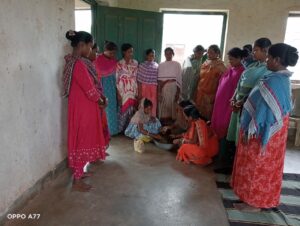
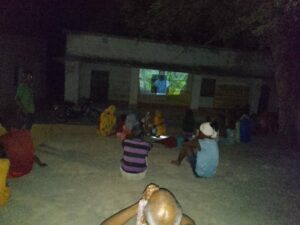 These trained FLWs are disseminating videos on Climate Smart Agriculture (CSA) and allied practices among farmers’ groups in their respective villages for skilling farmers and for improved adoption of practices. Meena Devi, a farmer from Bundu block of Ranchi, shared that ‘adopting the natural farming practices will not only improve our health, but it will also improve the soil fertility. By adopting these practices, I am observing better crop growth and yield as well. There is no pest attack in the crops, and the produce is also tastier than before.’
These trained FLWs are disseminating videos on Climate Smart Agriculture (CSA) and allied practices among farmers’ groups in their respective villages for skilling farmers and for improved adoption of practices. Meena Devi, a farmer from Bundu block of Ranchi, shared that ‘adopting the natural farming practices will not only improve our health, but it will also improve the soil fertility. By adopting these practices, I am observing better crop growth and yield as well. There is no pest attack in the crops, and the produce is also tastier than before.’
In pursuing sustainable agricultural practices amidst the challenges posed by climate change, the video-based extension has emerged as a powerful tool. With the integration of community video approach in the training, the farmers are presented with an unprecedented visually engaging medium to absorb the information, which stands as a distinctive experience for them, thus increasing participation of the farmers in the training.
To cater to the requirement at the field level, video advisories on NPM practices, pigeon pea and paddy cultivation, and strengthening collectives like PG/FPC and Non Timber Forest Products (NTFP) are being disseminated amongst the farmers during the ongoing kharif season. The videos not only enhance the overall learning experience but also allow the participants to revisit the content, reinforcing their understanding. Moreover, the skilled facilitation by the FLWs contributes significantly in maintaining participation, engagement, and attentiveness. As witnessed, there is an encouraging rise in male participation through video dissemination, which is programmatically designed for women groups. This results in increasing household-level discussion and agreement to adopt new practices in farming.
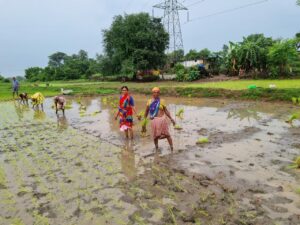 FLW Sunita Devi from Simdega district shares, ‘the male counterparts are also interested in attending the dissemination as they found the videos interesting and useful. They are also getting motivated to adopt the practice of ‘lime application in farmland,’ which they watched during the recent dissemination session in the village. They appreciated the dissemination conducted by me and also the video-based advisories’. This inclusive approach is not only promoting gender equality but also increasing the overall impact of the dissemination initiatives. Among farmers, there is a demand for new videos on crop practices related to millets, Non-Timber Forest Products (NTFP), honey, and vegetables. This growing demand highlights the farmers’ active interest in acquiring knowledge tailored to their specific needs and preferences. As this demand continues to grow, incorporating more video content is assumed to be central to empowering farmers with the knowledge necessary for informed decision-making and optimizing farming practices.
FLW Sunita Devi from Simdega district shares, ‘the male counterparts are also interested in attending the dissemination as they found the videos interesting and useful. They are also getting motivated to adopt the practice of ‘lime application in farmland,’ which they watched during the recent dissemination session in the village. They appreciated the dissemination conducted by me and also the video-based advisories’. This inclusive approach is not only promoting gender equality but also increasing the overall impact of the dissemination initiatives. Among farmers, there is a demand for new videos on crop practices related to millets, Non-Timber Forest Products (NTFP), honey, and vegetables. This growing demand highlights the farmers’ active interest in acquiring knowledge tailored to their specific needs and preferences. As this demand continues to grow, incorporating more video content is assumed to be central to empowering farmers with the knowledge necessary for informed decision-making and optimizing farming practices.
During the field visits and interaction with the FLWs and farmers, it was evident that there has been a considerable increase in the adoption of recommended practices amongst the farmers. By leveraging the visual medium, the videos effectively communicate the intricacies of CSA methods, making them accessible and relatable. The awareness and understanding of practices that could withstand the vagaries of climate change have notably increased among both FLWs and farmers. FLW Beena Devi mentions: ‘By watching the videos, practice adoption has become easier for the farmers, and almost more than 80% of the farmers are adopting the recommended practices.’ She is also preparing Neemastra, Jeevamrit, and other organic formulations for fertility and pest control and selling them to the farmers so they can get them handy when required. Being a farmer as well, she adopts the practices in her field too.
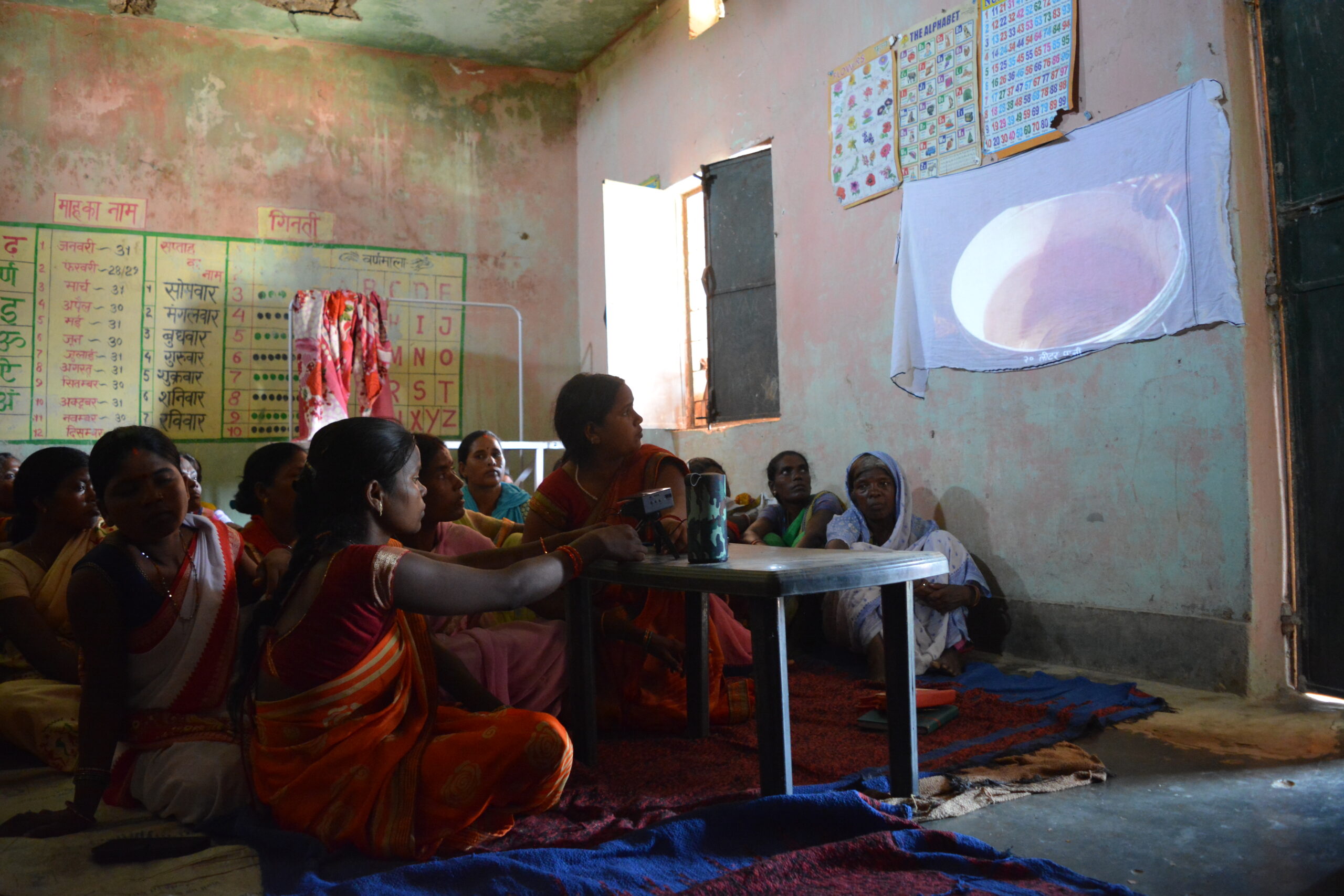
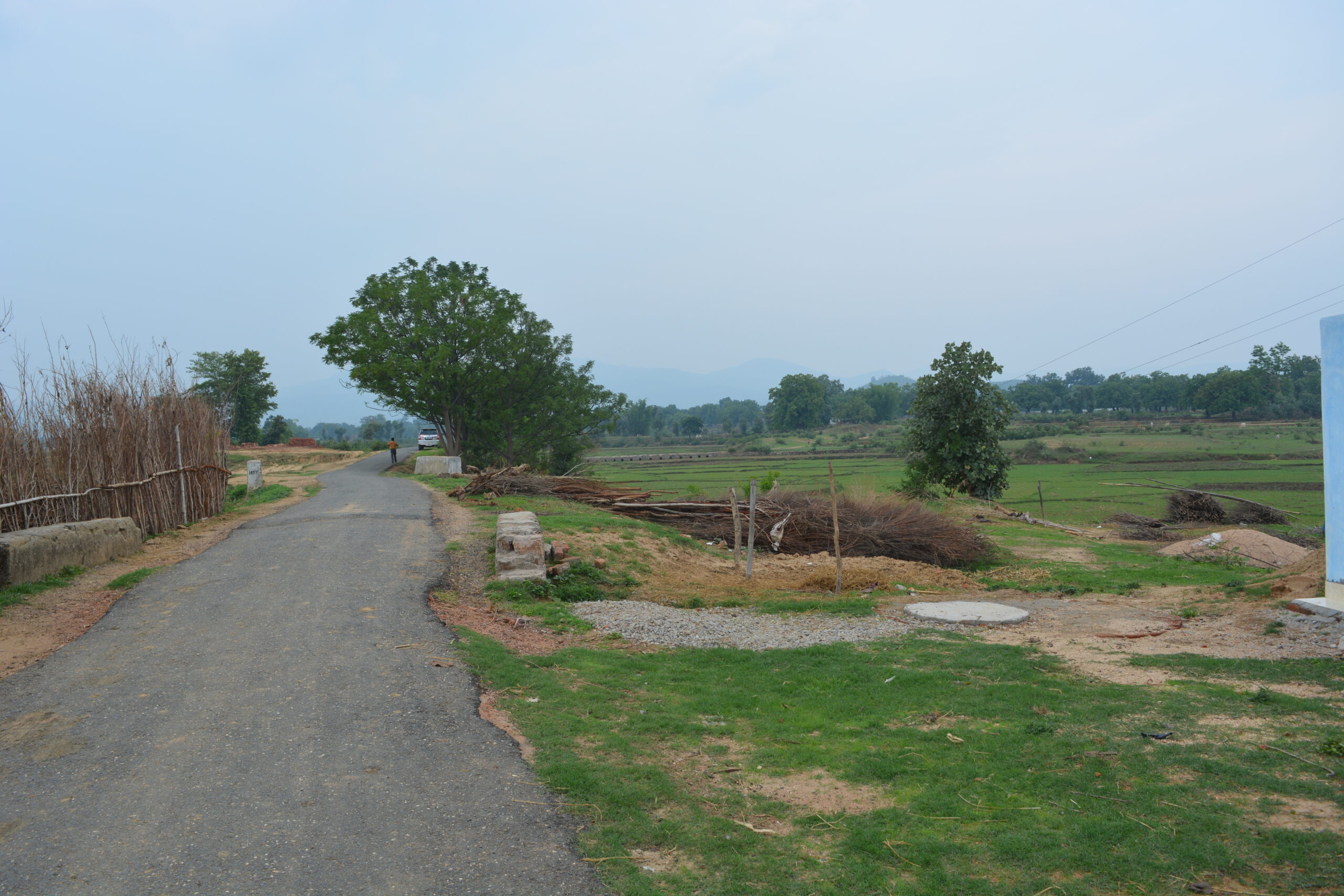 Notably, as the transplantation of paddy has experienced delays due to late monsoon, to counter this challenge, farmers are diversifying their cultivation by prioritizing seasonally appropriate vegetable crops, both to align with changing patterns and to generate income. Millets, at present, have gained prominence as they can thrive in less water, as there is demand in the market. The farmers are now adopting water-saving practices in irrigation by avoiding overwatering and appropriate scheduling of the same, soil conservation approaches, inter-cropping strategies, and other related practices as the videos function as a bridge, simplifying these approaches and offering practical steps for their successful application. Farmers are now better equipped to navigate the complexities of contemporary agriculture while simultaneously addressing the challenges presented by a changing climate. They are leaning towards climate-friendly techniques like seed treatment using bio-formulations, line-sowing, bio-fertilizers, pesticides, and inter-cropping. This collective effort signifies a trajectory toward resilience and sustainability in agriculture.
Notably, as the transplantation of paddy has experienced delays due to late monsoon, to counter this challenge, farmers are diversifying their cultivation by prioritizing seasonally appropriate vegetable crops, both to align with changing patterns and to generate income. Millets, at present, have gained prominence as they can thrive in less water, as there is demand in the market. The farmers are now adopting water-saving practices in irrigation by avoiding overwatering and appropriate scheduling of the same, soil conservation approaches, inter-cropping strategies, and other related practices as the videos function as a bridge, simplifying these approaches and offering practical steps for their successful application. Farmers are now better equipped to navigate the complexities of contemporary agriculture while simultaneously addressing the challenges presented by a changing climate. They are leaning towards climate-friendly techniques like seed treatment using bio-formulations, line-sowing, bio-fertilizers, pesticides, and inter-cropping. This collective effort signifies a trajectory toward resilience and sustainability in agriculture.
To complement the video-based advisory sharing, WhatsApp-based chatbot is also being implemented during the current kharif season, where farmers could access real-time specific crop advisories on paddy and pigeon pea based on their need. The bot is now live for farmers, where the agriculture extension workers are taking the lead to spread this service among all the farmers in their respective villages, helping them get the videos on the required crop and crop stages. They are also demanding additional crop advisories, which reflects their interest and usefulness of the digital tools.
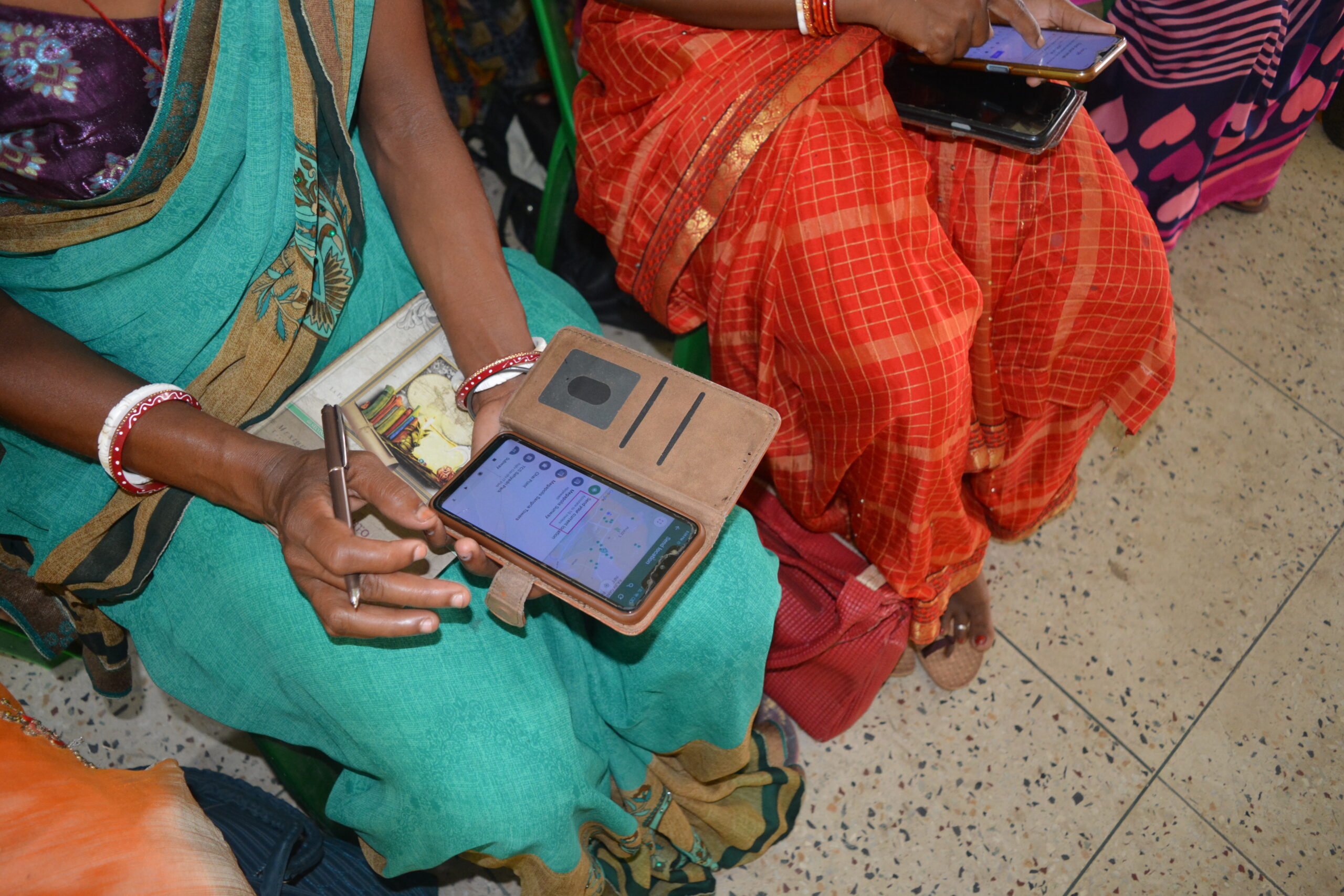 Project DEEP is being implemented for the small & marginal farmers of Jharkhand in collaboration with Jharkhand State Livelihood Promotion Society (JSLPS) under Mahila Kisan Sashaktikaran Pariyojana (MKSP) and with the generous funding support of Accenture Solutions Pvt. Ltd. The project incorporates Digital Green’s highly acclaimed video-based approach (VBA) for developing appropriate content based on formative research, producing short videos to demonstrate the application of new methods, and disseminating the videos to farmers. After successful completion of year 1 implementation of the DEEP project in 33 blocks of 8 districts, reaching 50k+ farmers during 2022-23, the project is now being scaled to additional 20 blocks, altogether covering 53 blocks from 13 districts with a target to reach additional 50k farmers in the year 2023-24.
Project DEEP is being implemented for the small & marginal farmers of Jharkhand in collaboration with Jharkhand State Livelihood Promotion Society (JSLPS) under Mahila Kisan Sashaktikaran Pariyojana (MKSP) and with the generous funding support of Accenture Solutions Pvt. Ltd. The project incorporates Digital Green’s highly acclaimed video-based approach (VBA) for developing appropriate content based on formative research, producing short videos to demonstrate the application of new methods, and disseminating the videos to farmers. After successful completion of year 1 implementation of the DEEP project in 33 blocks of 8 districts, reaching 50k+ farmers during 2022-23, the project is now being scaled to additional 20 blocks, altogether covering 53 blocks from 13 districts with a target to reach additional 50k farmers in the year 2023-24.
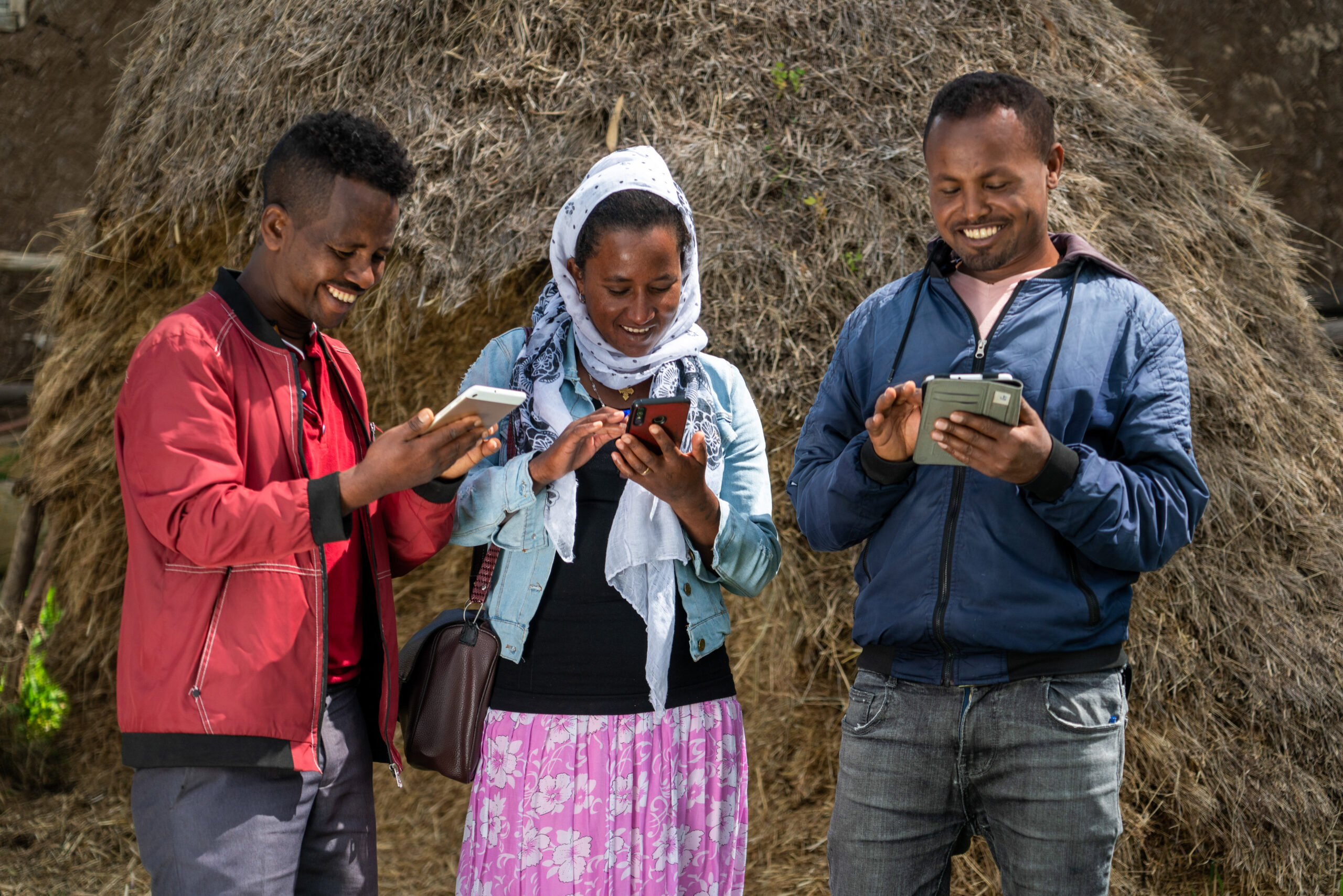
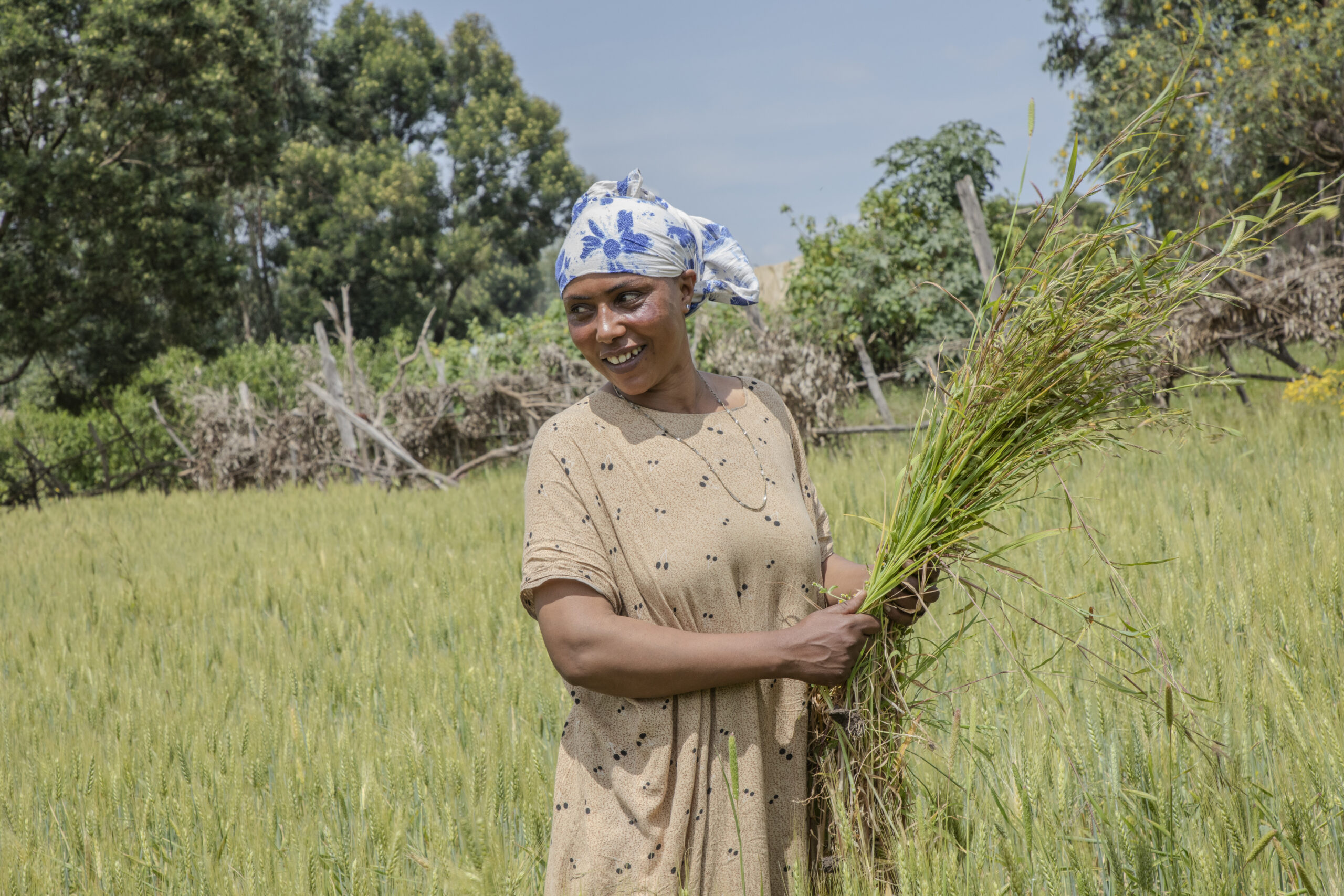
 In the rolling wheat fields of Ethiopia, a digital revolution is taking root. In a country where traditional blanket fertilizer recommendations have long governed farming practices, a pioneering initiative is breaking new ground, promising not just higher yields, but a brighter future for farmers. Digital Green, in partnership with the
In the rolling wheat fields of Ethiopia, a digital revolution is taking root. In a country where traditional blanket fertilizer recommendations have long governed farming practices, a pioneering initiative is breaking new ground, promising not just higher yields, but a brighter future for farmers. Digital Green, in partnership with the 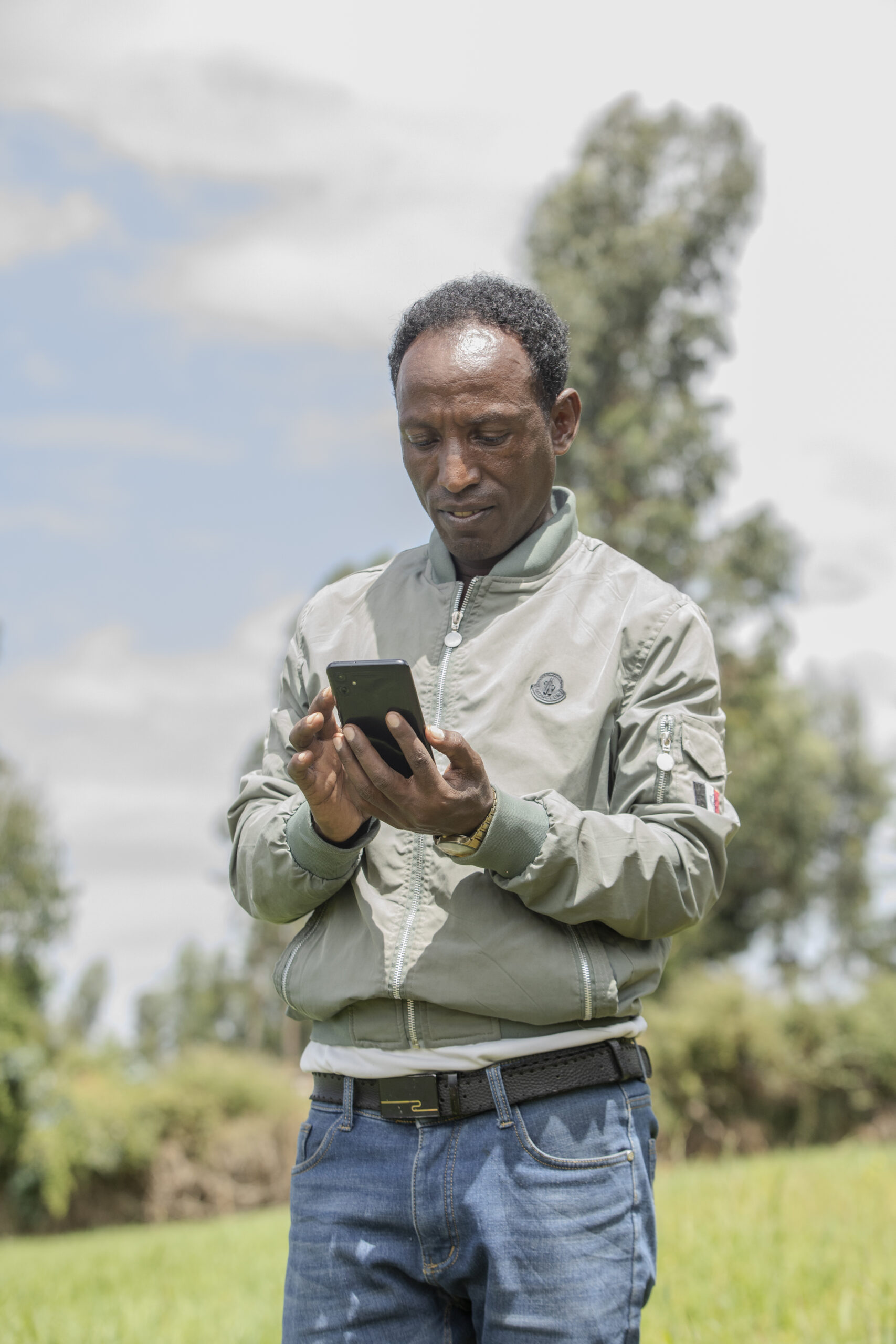 Frontline workers have embraced the Telegram bot, praising its user-friendliness and the ease it brings in dispensing advice at both village and individual levels. Their feedback is a testament to the tool’s effectiveness in making a real difference on the ground. This digital transformation has not just boosted crop yields; it’s changing lives. Over 50,200 farmers, including a significant 25% female representation, from 16 woredas have been reached through these advisories. What’s more, 38,810 farmers have accessed information directly from the Telegram bot, embodying the success of this digital leap.
Frontline workers have embraced the Telegram bot, praising its user-friendliness and the ease it brings in dispensing advice at both village and individual levels. Their feedback is a testament to the tool’s effectiveness in making a real difference on the ground. This digital transformation has not just boosted crop yields; it’s changing lives. Over 50,200 farmers, including a significant 25% female representation, from 16 woredas have been reached through these advisories. What’s more, 38,810 farmers have accessed information directly from the Telegram bot, embodying the success of this digital leap. 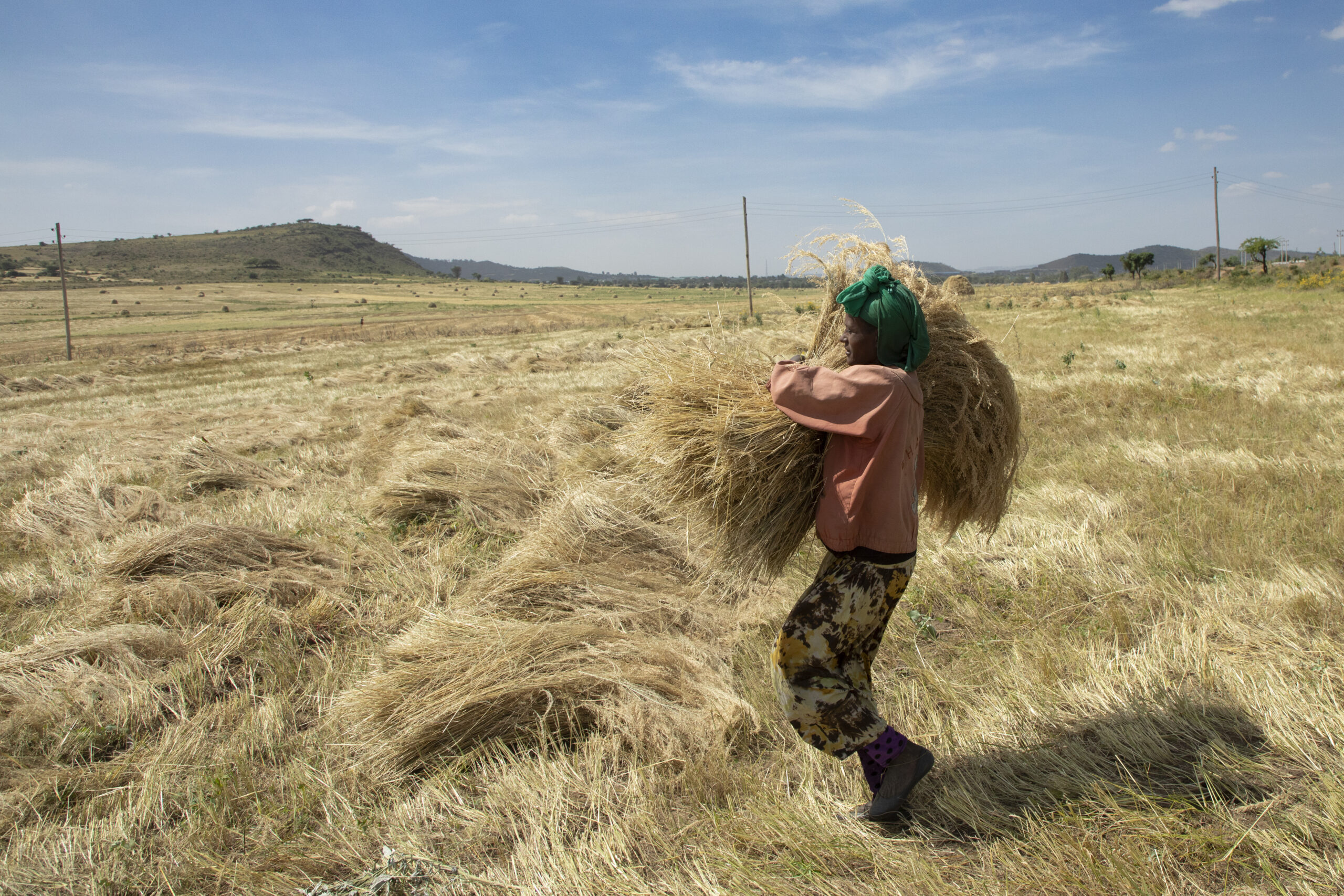
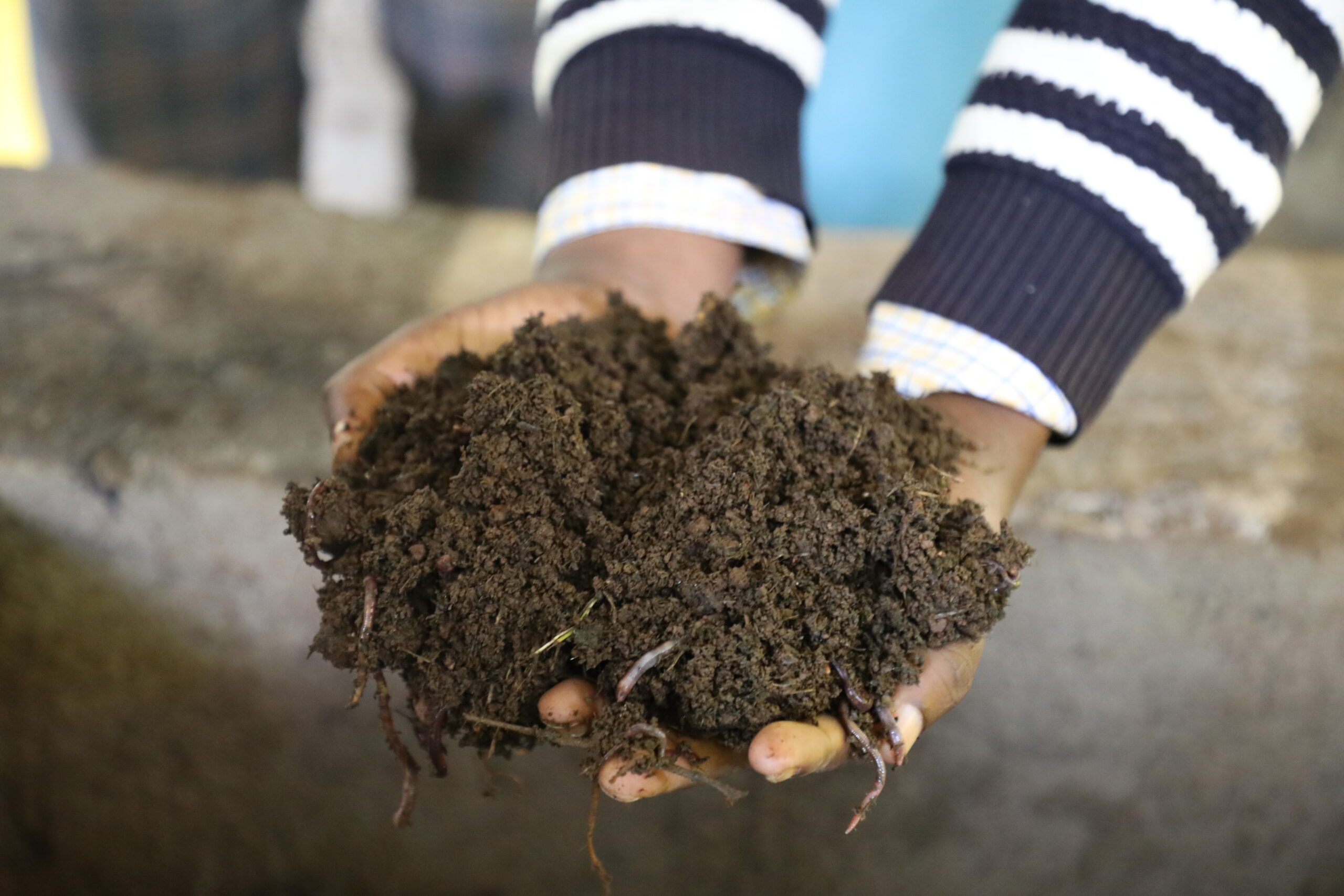 Beneath the vibrant tapestry of our rural landscapes lies an unsung hero – the soil. This living, breathing foundation is not just dirt beneath our feet; it’s the bedrock of our existence, pivotal in feeding the ever-growing global population. Yet, its silent cry for help often goes unheard. This World Soil Day, join us in unearthing the story of soil – a tale of neglect, revival, and hope.
Beneath the vibrant tapestry of our rural landscapes lies an unsung hero – the soil. This living, breathing foundation is not just dirt beneath our feet; it’s the bedrock of our existence, pivotal in feeding the ever-growing global population. Yet, its silent cry for help often goes unheard. This World Soil Day, join us in unearthing the story of soil – a tale of neglect, revival, and hope.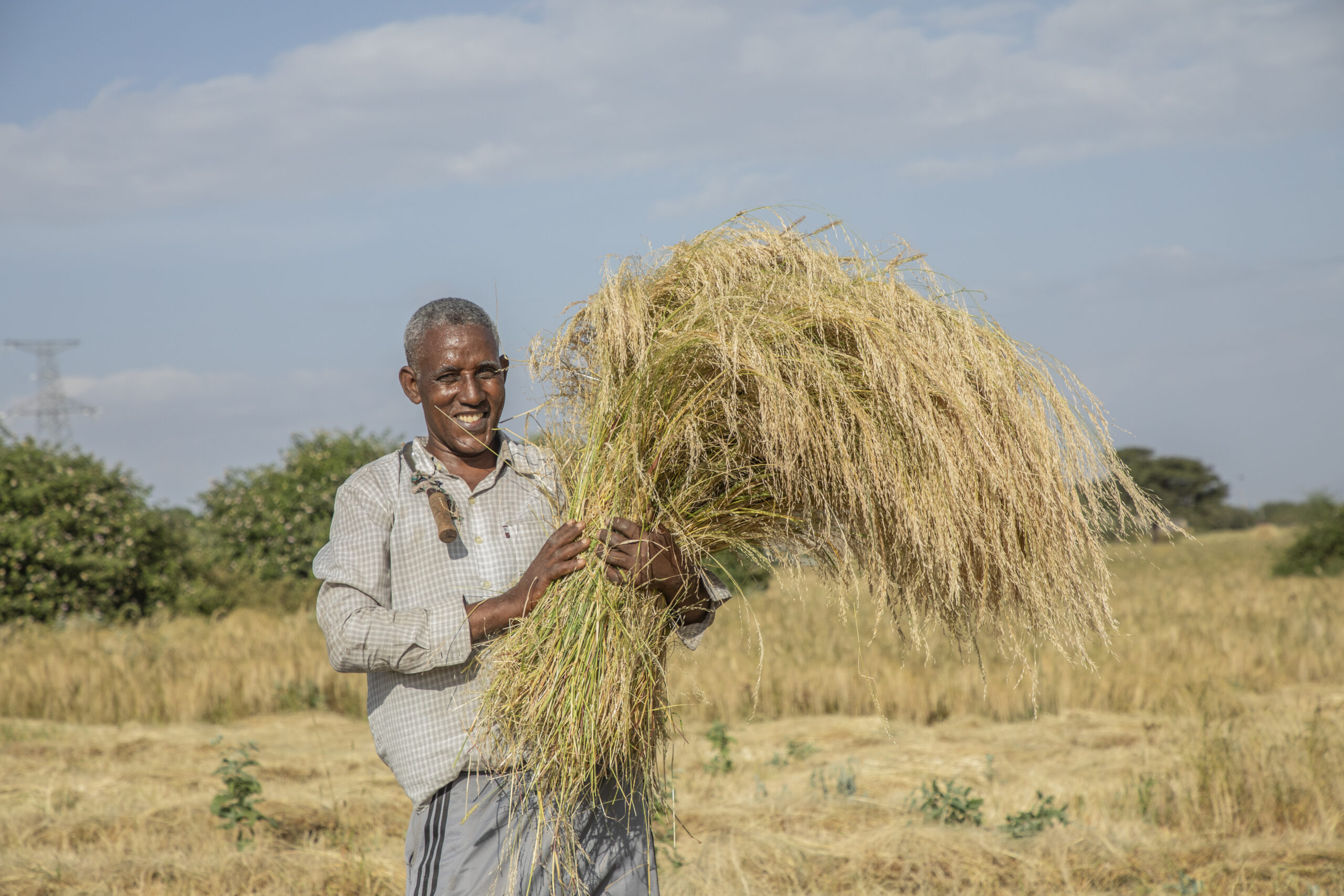 My soil was acidic, and growing maize was a challenge,” she shares. “But after attending Digital Green’s video sessions on vermicompost, I saw a dramatic change. My backyard, once barren, now flourishes with vegetables, fruits, and maize.”
My soil was acidic, and growing maize was a challenge,” she shares. “But after attending Digital Green’s video sessions on vermicompost, I saw a dramatic change. My backyard, once barren, now flourishes with vegetables, fruits, and maize.”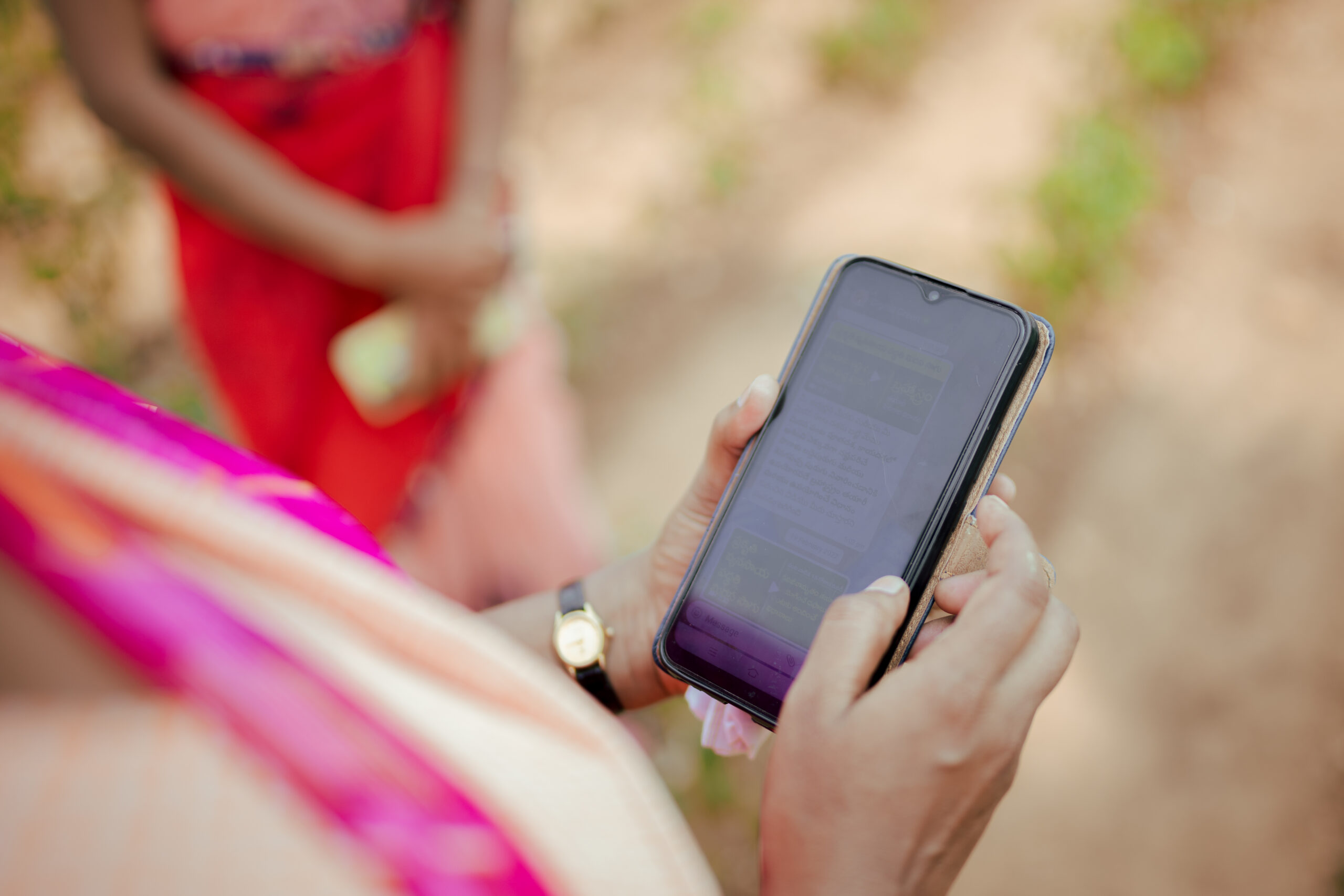
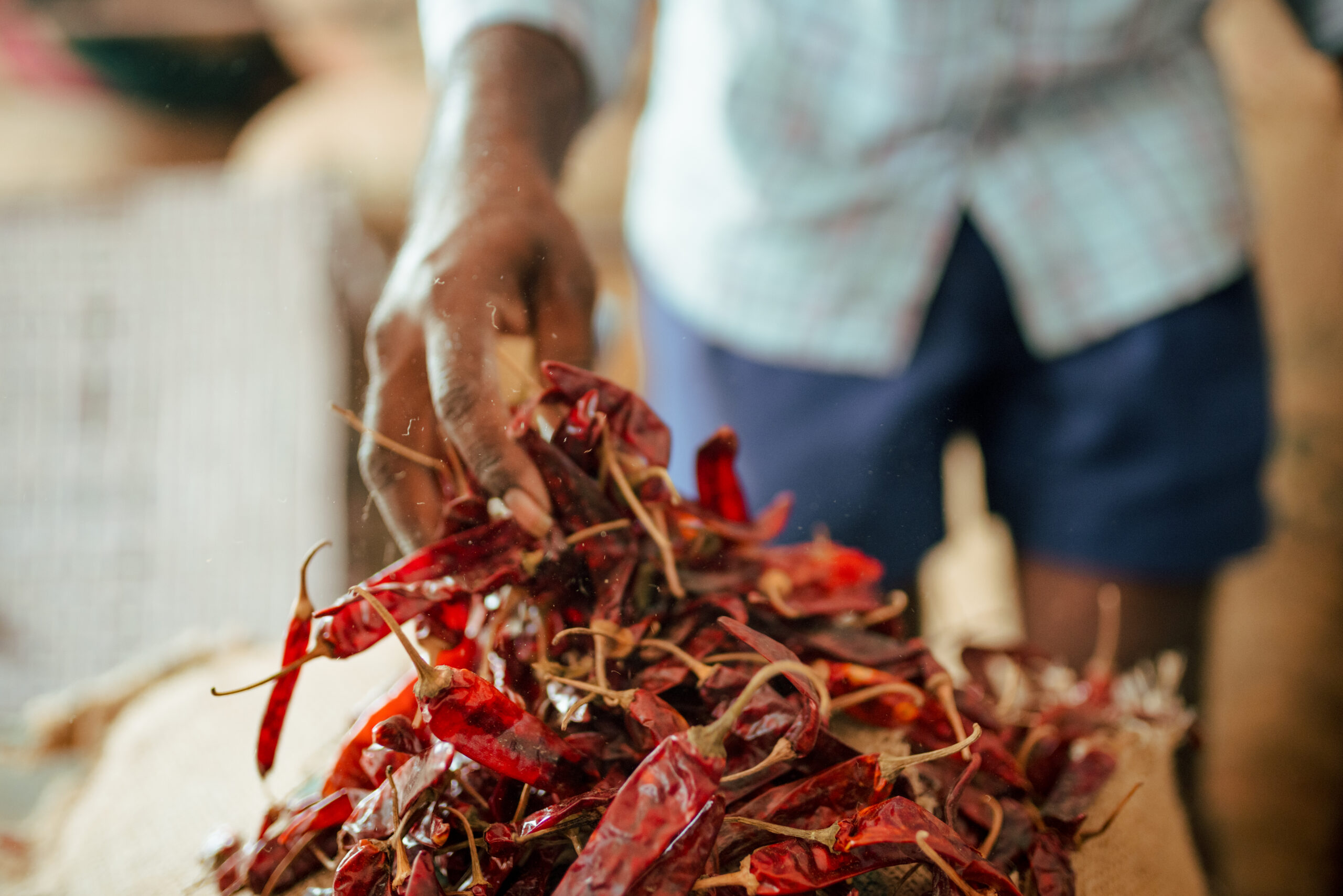 Small-scale chilli farmers in Andhra Pradesh, India, like many others across the country, faced the dual challenges of unpredictable climate and market conditions. To give them tools to face these challenges, we developed a practical solution leveraging digital technology designed for their unique and diverse needs. Through digital platforms and AI-powered crop assessments, farmers received tailored advisories around sowing, input use, and harvesting, aimed at improving chilli productivity in their specific location. These digital insights did more than improve productivity and incomes; they empowered them with collective wisdom and built community knowledge.
Small-scale chilli farmers in Andhra Pradesh, India, like many others across the country, faced the dual challenges of unpredictable climate and market conditions. To give them tools to face these challenges, we developed a practical solution leveraging digital technology designed for their unique and diverse needs. Through digital platforms and AI-powered crop assessments, farmers received tailored advisories around sowing, input use, and harvesting, aimed at improving chilli productivity in their specific location. These digital insights did more than improve productivity and incomes; they empowered them with collective wisdom and built community knowledge.  The AI assistant delivers customized videos to extension agents, offering prompt solutions to farm-level problems and needs. It not only empowers extension agents by expanding their on-the-job knowledge but also builds confidence and saves time, enabling them to serve more farmers with a higher-quality service. The feedback mechanism ensures the AI assistant evolves based on farmers’ and extension agents’ needs. Agronomists can also utilize this data to create gender-sensitive and climate-smart agricultural models, providing localized recommendations for fertilizers, seed selection, and pest mitigation.
The AI assistant delivers customized videos to extension agents, offering prompt solutions to farm-level problems and needs. It not only empowers extension agents by expanding their on-the-job knowledge but also builds confidence and saves time, enabling them to serve more farmers with a higher-quality service. The feedback mechanism ensures the AI assistant evolves based on farmers’ and extension agents’ needs. Agronomists can also utilize this data to create gender-sensitive and climate-smart agricultural models, providing localized recommendations for fertilizers, seed selection, and pest mitigation. 

 These trained FLWs are disseminating videos on Climate Smart Agriculture (CSA) and allied practices among farmers’ groups in their respective villages for skilling farmers and for improved adoption of practices. Meena Devi, a farmer from Bundu block of Ranchi, shared that ‘
These trained FLWs are disseminating videos on Climate Smart Agriculture (CSA) and allied practices among farmers’ groups in their respective villages for skilling farmers and for improved adoption of practices. Meena Devi, a farmer from Bundu block of Ranchi, shared that ‘ FLW Sunita Devi from Simdega district shares,
FLW Sunita Devi from Simdega district shares,
 Notably, as the transplantation of paddy has experienced delays due to late monsoon, to counter this challenge, farmers are diversifying their cultivation by prioritizing seasonally appropriate vegetable crops, both to align with changing patterns and to generate income. Millets, at present, have gained prominence as they can thrive in less water, as there is demand in the market. The farmers are now adopting water-saving practices in irrigation by avoiding overwatering and appropriate scheduling of the same, soil conservation approaches, inter-cropping strategies, and other related practices as the videos function as a bridge, simplifying these approaches and offering practical steps for their successful application. Farmers are now better equipped to navigate the complexities of contemporary agriculture while simultaneously addressing the challenges presented by a changing climate. They are leaning towards climate-friendly techniques like seed treatment using bio-formulations, line-sowing, bio-fertilizers, pesticides, and inter-cropping. This collective effort signifies a trajectory toward resilience and sustainability in agriculture.
Notably, as the transplantation of paddy has experienced delays due to late monsoon, to counter this challenge, farmers are diversifying their cultivation by prioritizing seasonally appropriate vegetable crops, both to align with changing patterns and to generate income. Millets, at present, have gained prominence as they can thrive in less water, as there is demand in the market. The farmers are now adopting water-saving practices in irrigation by avoiding overwatering and appropriate scheduling of the same, soil conservation approaches, inter-cropping strategies, and other related practices as the videos function as a bridge, simplifying these approaches and offering practical steps for their successful application. Farmers are now better equipped to navigate the complexities of contemporary agriculture while simultaneously addressing the challenges presented by a changing climate. They are leaning towards climate-friendly techniques like seed treatment using bio-formulations, line-sowing, bio-fertilizers, pesticides, and inter-cropping. This collective effort signifies a trajectory toward resilience and sustainability in agriculture. Project DEEP is being implemented for the small & marginal farmers of Jharkhand in collaboration with Jharkhand State Livelihood Promotion Society (JSLPS) under Mahila Kisan Sashaktikaran Pariyojana (MKSP) and with the generous funding support of Accenture Solutions Pvt. Ltd. The project incorporates Digital Green’s highly acclaimed video-based approach (VBA) for developing appropriate content based on formative research, producing short videos to demonstrate the application of new methods, and disseminating the videos to farmers. After successful completion of year 1 implementation of the DEEP project in 33 blocks of 8 districts, reaching 50k+ farmers during 2022-23, the project is now being scaled to additional 20 blocks, altogether covering 53 blocks from 13 districts with a target to reach additional 50k farmers in the year 2023-24.
Project DEEP is being implemented for the small & marginal farmers of Jharkhand in collaboration with Jharkhand State Livelihood Promotion Society (JSLPS) under Mahila Kisan Sashaktikaran Pariyojana (MKSP) and with the generous funding support of Accenture Solutions Pvt. Ltd. The project incorporates Digital Green’s highly acclaimed video-based approach (VBA) for developing appropriate content based on formative research, producing short videos to demonstrate the application of new methods, and disseminating the videos to farmers. After successful completion of year 1 implementation of the DEEP project in 33 blocks of 8 districts, reaching 50k+ farmers during 2022-23, the project is now being scaled to additional 20 blocks, altogether covering 53 blocks from 13 districts with a target to reach additional 50k farmers in the year 2023-24.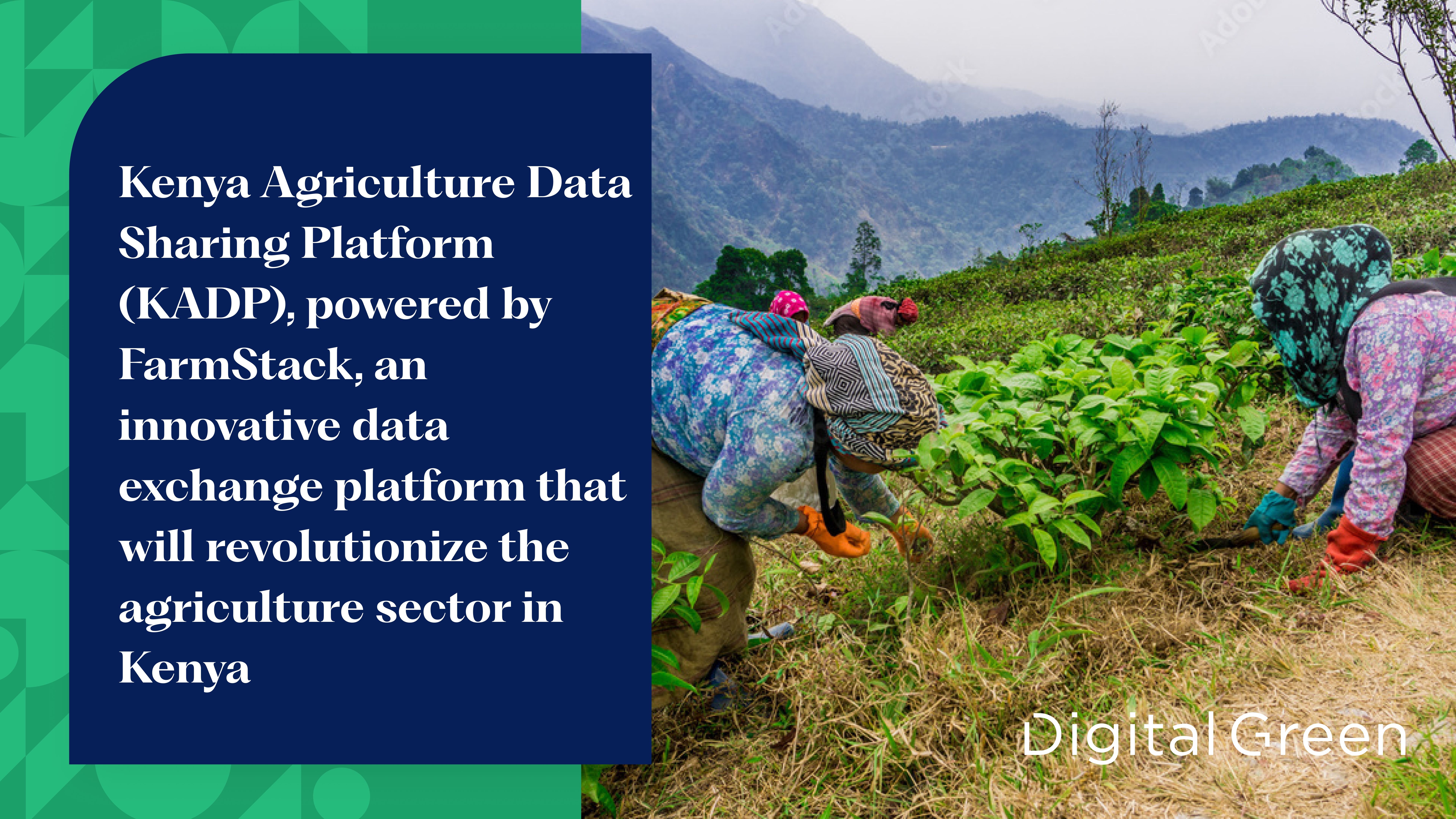
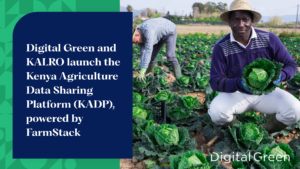 12 September 2023, Kenya – Along with
12 September 2023, Kenya – Along with 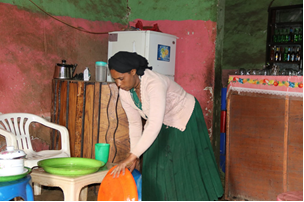
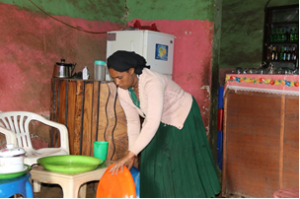 Teguaded Yehunie is a 38-year-old single mother of three living in Dendegeb Kebele, Baso Liben Woreda, of the Amhara region in Ethiopia. She makes a living by selling tea and other beverages in a rented home. Despite her being illiterate, she gives her kids the chance to go to school and manages to save 100 ETB per week from her sales.
Teguaded Yehunie is a 38-year-old single mother of three living in Dendegeb Kebele, Baso Liben Woreda, of the Amhara region in Ethiopia. She makes a living by selling tea and other beverages in a rented home. Despite her being illiterate, she gives her kids the chance to go to school and manages to save 100 ETB per week from her sales. 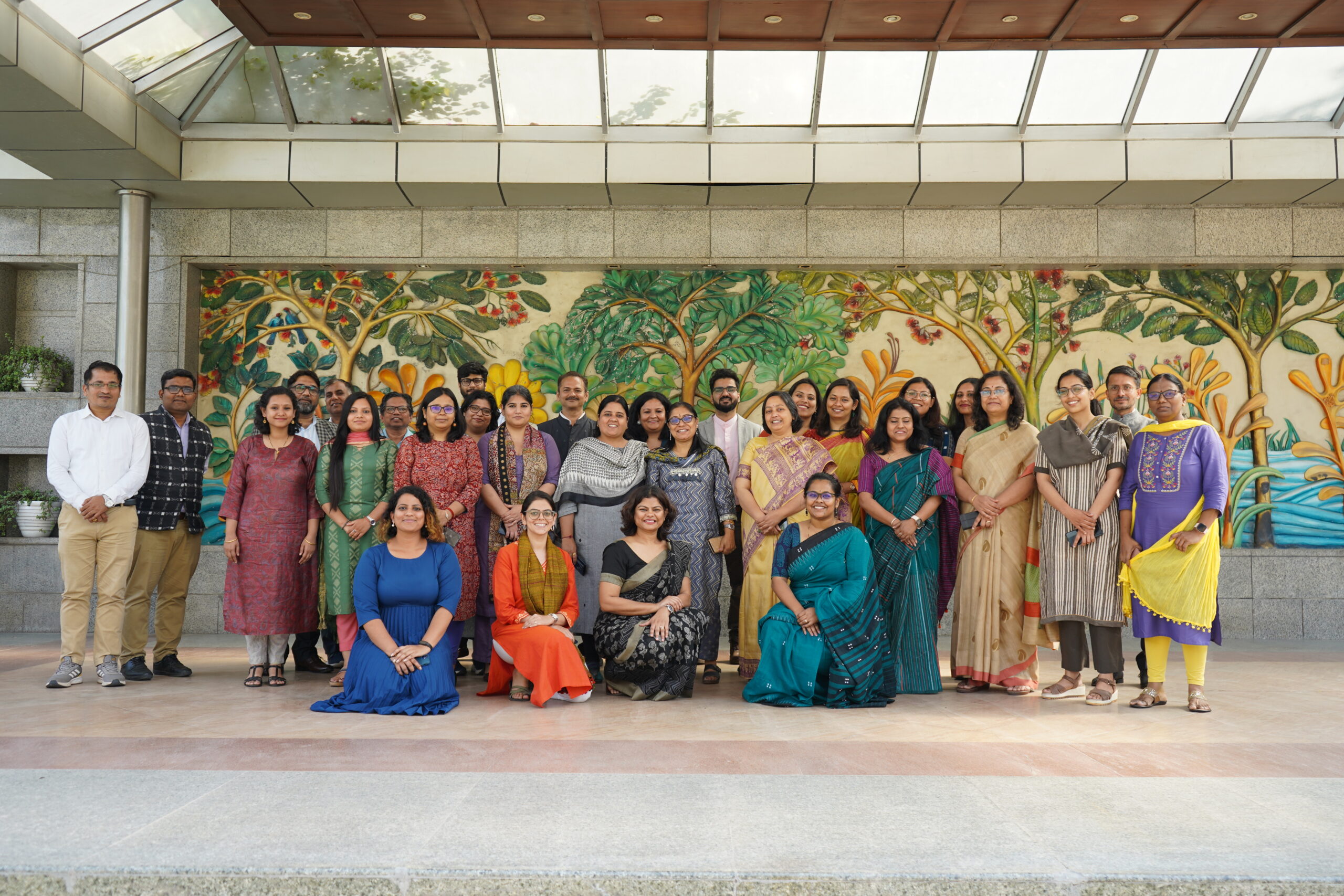
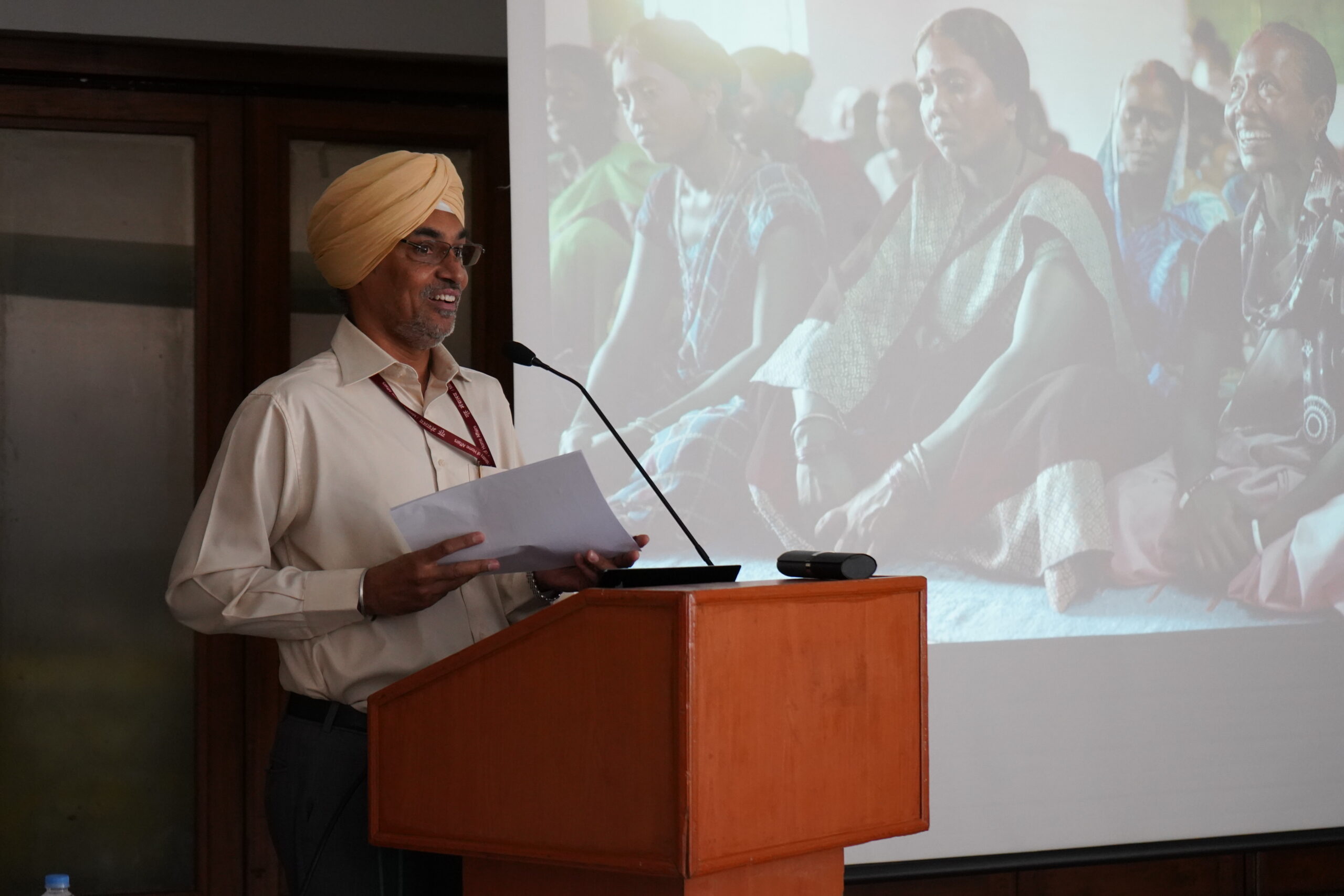 f Rural Development. Krishnan Pallassana in his welcome note emphasized on the primacy of women farmers in the agricultural ecosystem – who are responsible for ensuring employment, food and nutrition security. While Mr. Chiranjit Singh highlighted the need to contextualize and tailor solutions to build capacities of rural women; striving for innovative solutions with an intersectional lens to harness the power of social media and digital technologies to boost capacity building at scale. The speaker foregrounded the need
f Rural Development. Krishnan Pallassana in his welcome note emphasized on the primacy of women farmers in the agricultural ecosystem – who are responsible for ensuring employment, food and nutrition security. While Mr. Chiranjit Singh highlighted the need to contextualize and tailor solutions to build capacities of rural women; striving for innovative solutions with an intersectional lens to harness the power of social media and digital technologies to boost capacity building at scale. The speaker foregrounded the need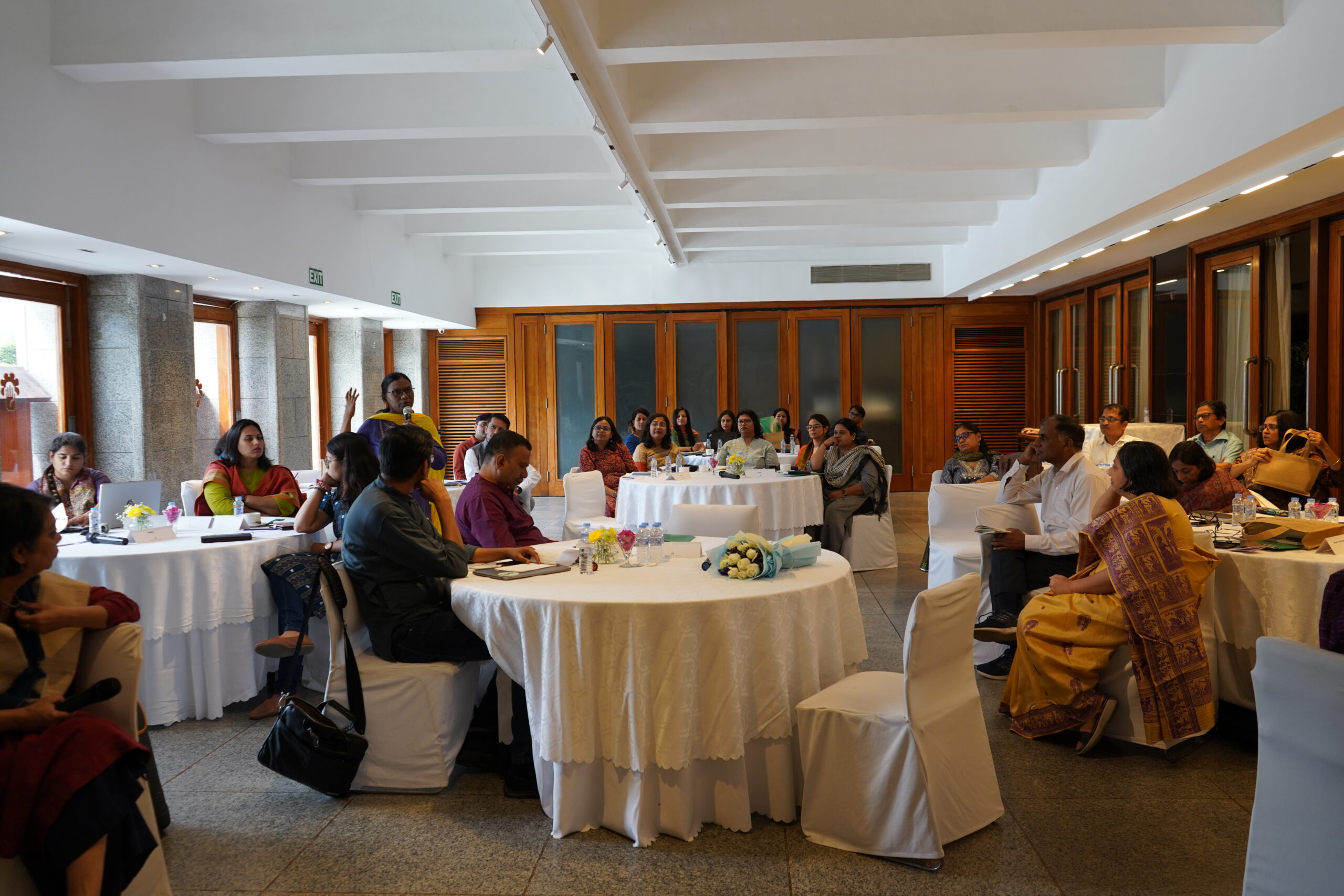 With this, the first round of deliberations were rooted in examining ‘empowerment’ from the lens of women farmers’ lived experiences. The participants explored the fluidity of the term itself and the difficulty to capture the subjective experience of being empowered. The participants underlined that women’s identities are relational and contextual, thus they should not be perceived as homogenous entities. Interventions for empowerment need to be designed to challenge gender inequities and power asymmetries, by facilitating conducive conditions for women to be able to challenge systems and structures to ensure they can thrive in both public and private spaces. With a concept as fuzzy as empowerment, the participants agreed that it presented its own set of challenges when it came to evaluation or measuring it. Thus a lot of interventions and efforts oscillate between economic development and economic empowerment.
With this, the first round of deliberations were rooted in examining ‘empowerment’ from the lens of women farmers’ lived experiences. The participants explored the fluidity of the term itself and the difficulty to capture the subjective experience of being empowered. The participants underlined that women’s identities are relational and contextual, thus they should not be perceived as homogenous entities. Interventions for empowerment need to be designed to challenge gender inequities and power asymmetries, by facilitating conducive conditions for women to be able to challenge systems and structures to ensure they can thrive in both public and private spaces. With a concept as fuzzy as empowerment, the participants agreed that it presented its own set of challenges when it came to evaluation or measuring it. Thus a lot of interventions and efforts oscillate between economic development and economic empowerment. 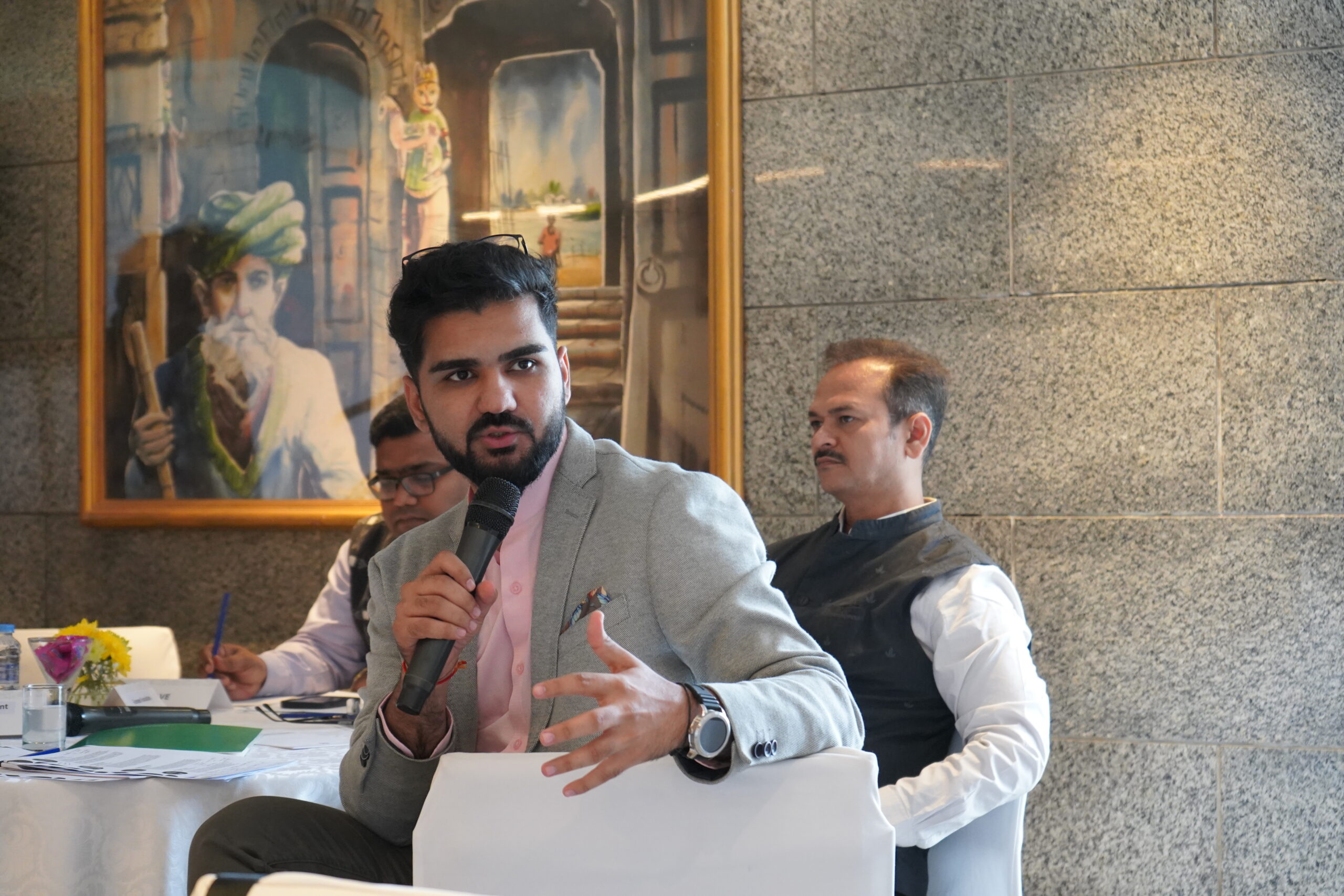 The second round table highlighted the deep and expansive work being undertaken with women farmers and women’s collectives in the realm of empowerment. The practitioners elaborated the challenges they faced while working on interventions rooted in empowerment. The challenges led the organizations to rely on economic indicators in their respective interventions. Insights from practitioners highlighted the need to build capacities of women farmers to undertake data-backed business planning and decision making as well as devise strategies to enhance collective agency and critical consciousness to scale empowerment. The floor acknowledged that the content and interventions for women farmers should be mindful of diversity in their contexts and languages with a focus on human mediated delivery while at the same time focussing on simplifying solutions and products. Further emphasis needs to be placed on closing the gender gaps in access to digital resources with creating women centered products that are conscious of women’s unique needs and capabili
The second round table highlighted the deep and expansive work being undertaken with women farmers and women’s collectives in the realm of empowerment. The practitioners elaborated the challenges they faced while working on interventions rooted in empowerment. The challenges led the organizations to rely on economic indicators in their respective interventions. Insights from practitioners highlighted the need to build capacities of women farmers to undertake data-backed business planning and decision making as well as devise strategies to enhance collective agency and critical consciousness to scale empowerment. The floor acknowledged that the content and interventions for women farmers should be mindful of diversity in their contexts and languages with a focus on human mediated delivery while at the same time focussing on simplifying solutions and products. Further emphasis needs to be placed on closing the gender gaps in access to digital resources with creating women centered products that are conscious of women’s unique needs and capabili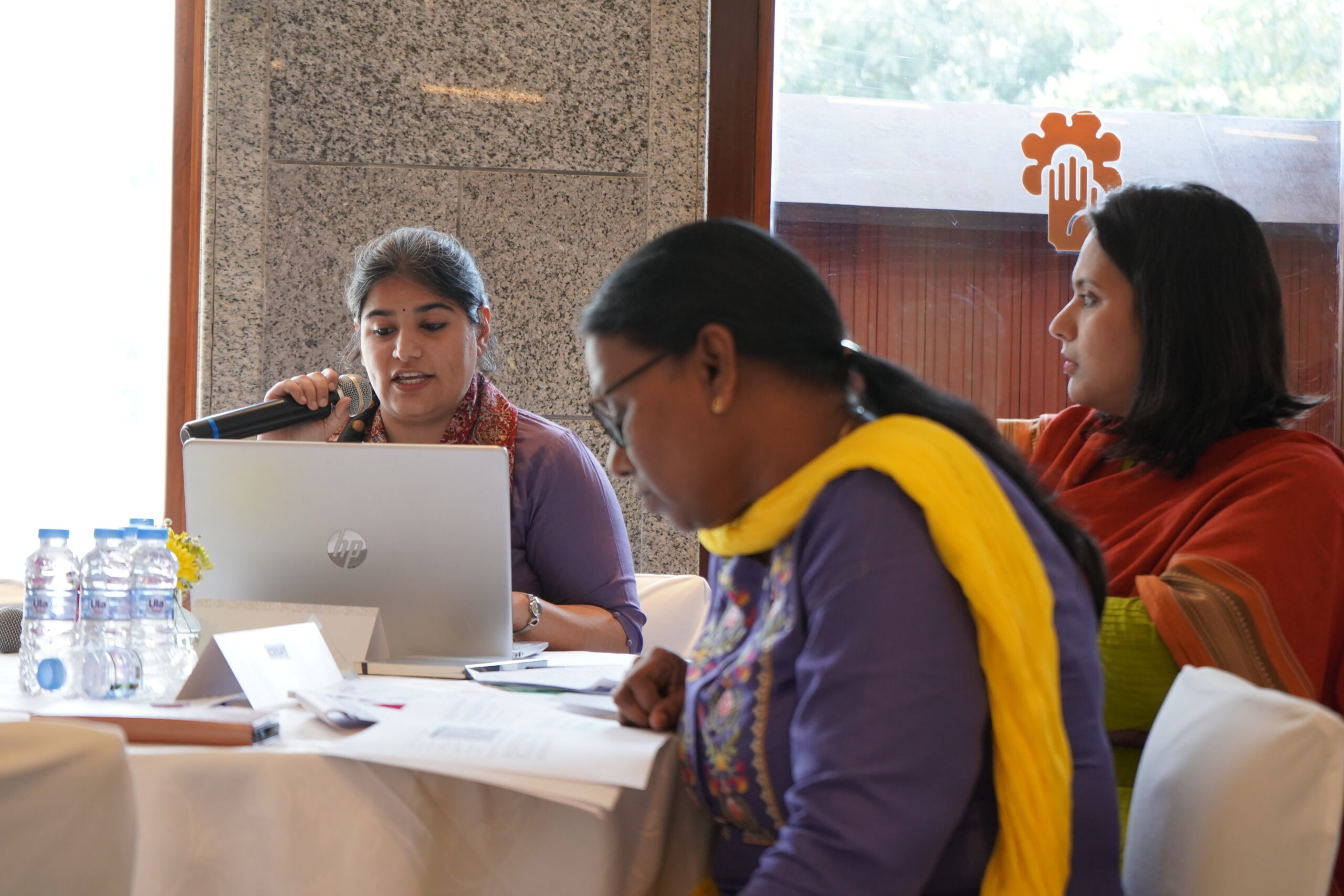 ties.
ties.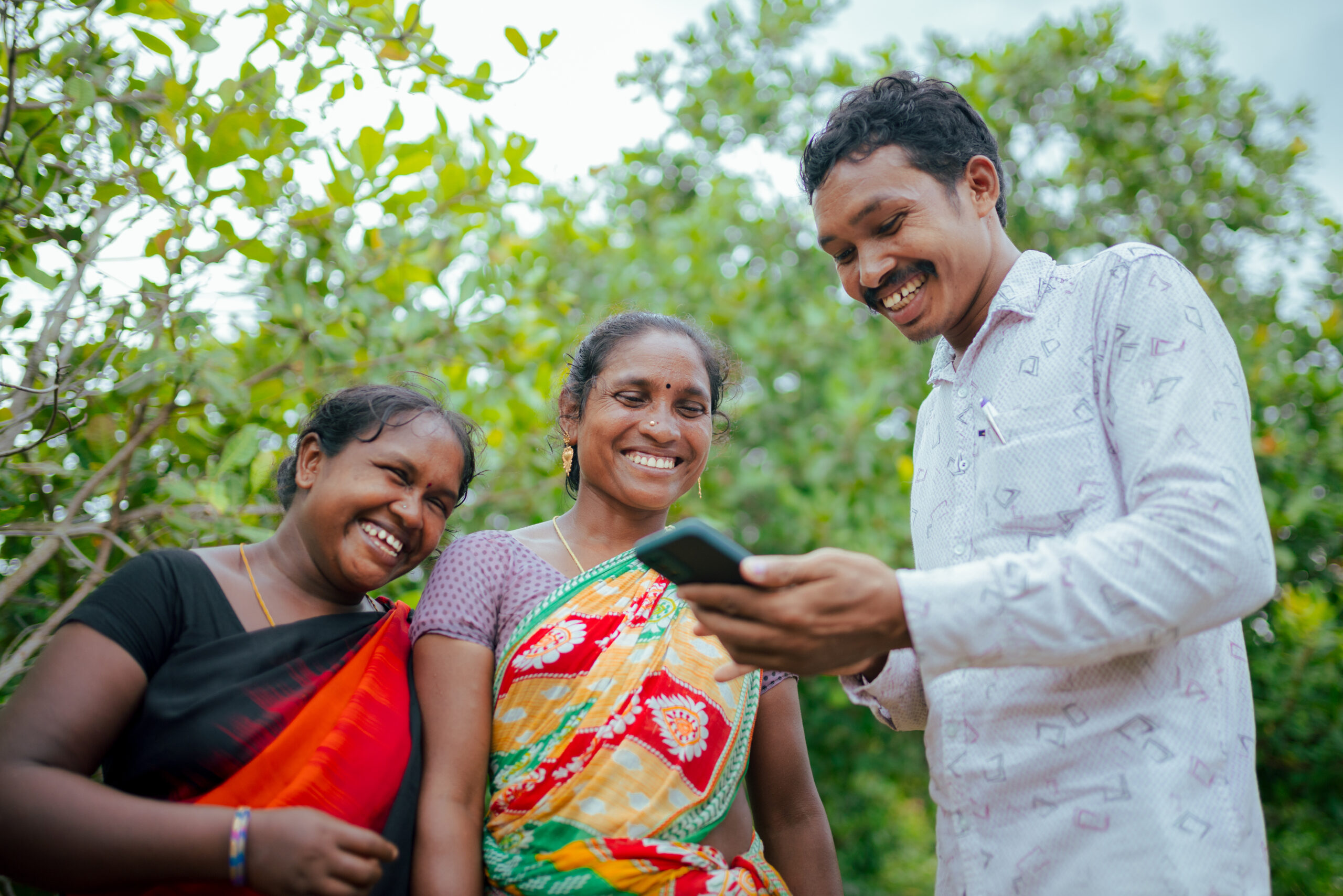
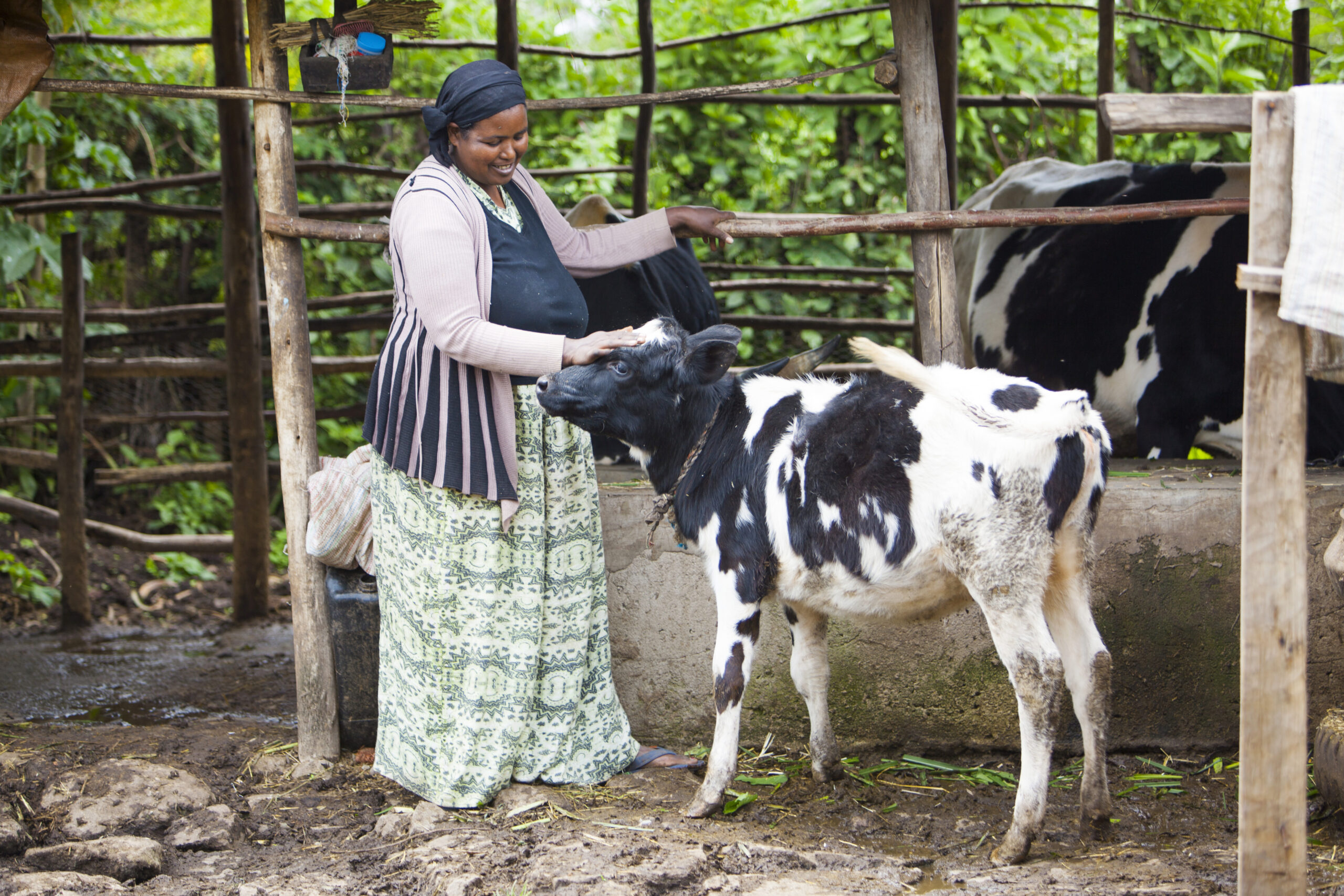
 The study included interviews with 1,057 dairy farmers in Ethiopia who received advisory messages through the 8028 IVR calls, of which 59% were from the Amhara region. The samples were segmented between primary, secondary, and partial listeners based on their listening rate of the 5 advisory messages delivered through the IVR. Of the interviewed farmers, 41% reported that their quality of life has very much improved due to the IVR service they are getting, of which 28% mentioned that their dairy production has increased, and 19% said they have become able to afford household bills. Listeners valued convenience, ease of understanding, and usefulness of the information.
The study included interviews with 1,057 dairy farmers in Ethiopia who received advisory messages through the 8028 IVR calls, of which 59% were from the Amhara region. The samples were segmented between primary, secondary, and partial listeners based on their listening rate of the 5 advisory messages delivered through the IVR. Of the interviewed farmers, 41% reported that their quality of life has very much improved due to the IVR service they are getting, of which 28% mentioned that their dairy production has increased, and 19% said they have become able to afford household bills. Listeners valued convenience, ease of understanding, and usefulness of the information. 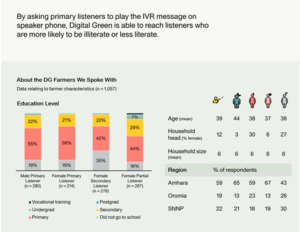 About 9 in 10 male farmers applied information, compared to only 7 in 10 female farmers. Similarly, close to 8 in 10 male farmers use AI services for crossbred cattle, compared to only 65% of female listeners. According to the study, levels of decision-making ability vary by sex and listener groups, and sharing information is also likely to be between members of the same sex in a community forum. Male listeners are more likely to share information through family gatherings than females, while female listeners are more likely to share the information in one-to-one conversations and village-level community groups compared to males.
About 9 in 10 male farmers applied information, compared to only 7 in 10 female farmers. Similarly, close to 8 in 10 male farmers use AI services for crossbred cattle, compared to only 65% of female listeners. According to the study, levels of decision-making ability vary by sex and listener groups, and sharing information is also likely to be between members of the same sex in a community forum. Male listeners are more likely to share information through family gatherings than females, while female listeners are more likely to share the information in one-to-one conversations and village-level community groups compared to males. 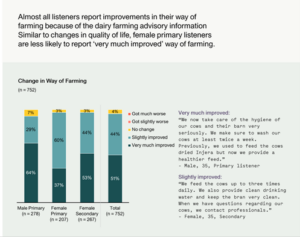 The study also indicated that the project could consider providing messaging around joint decision-making to increase female levels of decision-making ability in the household. The IVR messages should reinforce the need for more equitable distribution of dairy activities within households. Besides female reach, the study recommends additional assistance to deepen the impact of the IVR messaging including encouraging and incentivizing women to share messages with other women in their households and community to increase the impact on farmers not just by interacting with them directly, but also through their family members. Improving women farmers’ access to financial products could increase the adoption of AI to get crossbred cattle and in turn, potentially increase IVR’s effectiveness is also recommended by the study.
The study also indicated that the project could consider providing messaging around joint decision-making to increase female levels of decision-making ability in the household. The IVR messages should reinforce the need for more equitable distribution of dairy activities within households. Besides female reach, the study recommends additional assistance to deepen the impact of the IVR messaging including encouraging and incentivizing women to share messages with other women in their households and community to increase the impact on farmers not just by interacting with them directly, but also through their family members. Improving women farmers’ access to financial products could increase the adoption of AI to get crossbred cattle and in turn, potentially increase IVR’s effectiveness is also recommended by the study.